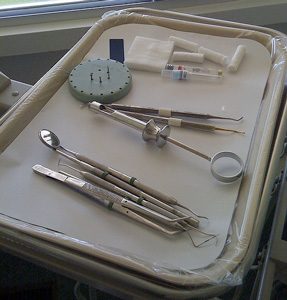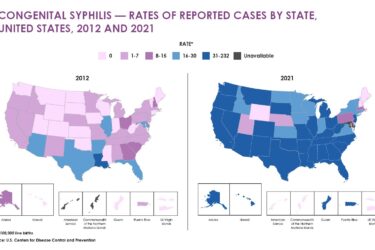
Reporter Richard Liebson recently recounted the story of an aging, 35-foot Winnebago that trundles through New York’s Hudson Valley to deliver dental care to intellectually disabled children and adults served by 15 agencies in the region.
Before the dental van started making its rounds, “we were in trouble,” said John Porcella, who heads one of those agencies. Finding care and scheduling dental appointments for the 140 disabled people in his program was a major ordeal, Porcella explained. Getting one single person to the dentist could tie up a staffer for an entire day.
“Now we can take care of eight to 10 people in a day,” Porcella told Liebson for the story published by LoHud.com, a local news service that is part of the USA Today Network.
But for many Americans living with disabilities, there is no trusty mobile clinic and no reliable provider. Dental care remains a particularly difficult health service to obtain. Medicare and Medicaid benefits may be inadequate. Patients who may need to undergo general anesthesia in a hospital because they are frightened or physically unable to lie still in a dental chair often face long waits for services. Also, the nation faces a significant shortage of dentists with the training and willingness to accept patients with special needs, according to an independent federal agency charged with shaping national disability policy.
In the issue brief, “Neglected for Too Long: Dental Care for People with Intellectual and Developmental Disabilities,” the National Council on Disability (NCD) estimated that roughly 75 percent of dental students reported little or no preparation for providing care to people with intellectual and developmental disabilities (I/DD).
“For too long, many individuals with I/DD have faced significant challenges in finding dental care providers able or willing to treat them, leaving those patients to have to drive several hours away to find a capable clinic or to forgo care altogether,” NCD Chairperson Clyde Terry said in a statement released with the brief.
“The effect proper dental care has on preventing larger health concerns and costs cannot be underestimated,” Terry added.
Now the agency is calling upon dentists to accept more disabled patients and upon dental schools to provide students with improved training in caring for patients with special needs.
In a January letter, the NCD requested that the American Dental Association (ADA) modify its Principles of Ethics and Code of Responsibility to reflect the professional responsibility of dentists to serve the disabled.
The ADA’s professional code prohibits dentists from refusing to accept patients based on their race, creed, sex or national origin, the NCD noted in its letter. “However, the ADA Code does not similarly prohibit dentists from refusing to accept or treat patients because of their disabilities,” it said.
The NCD also has called on the Commission on Dental Accreditation (CODA), the body responsible for accrediting the nation’s dental schools, to bolster training requirements related to the treatment of patients with special needs.
According to the NCD, the current CODA standard does not require that dental school graduates be proficient in providing care – only that they “be competent in assessing the treatment needs” of patients with disabilities.
The ADA is considering the changes, according to ADA spokeswoman Katherine Merullo.
“The request for amendment is being considered internally and is under review. ADA staff and NCD staff discussed this, and now it will follow through internal procedures for consideration,” Merullo wrote in an email.
CODA also is mulling the revision of pre-doctoral accreditation standards, Merullo wrote.
“The commission directed all review committees to consider the National Council on Disability Issue Brief “Neglect for Too Long: Dental Care for People with Intellectual and Developmental Disabilities,” with a report to the commission in summer 2018,” Merullo said.
The NCD also is asking Congress to strengthen loan repayment programs and other initiatives that could encourage more dentists to serve the disabled.
Reporters: are disabled people in your community able to find dental care?






